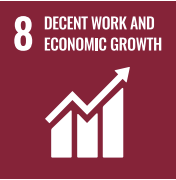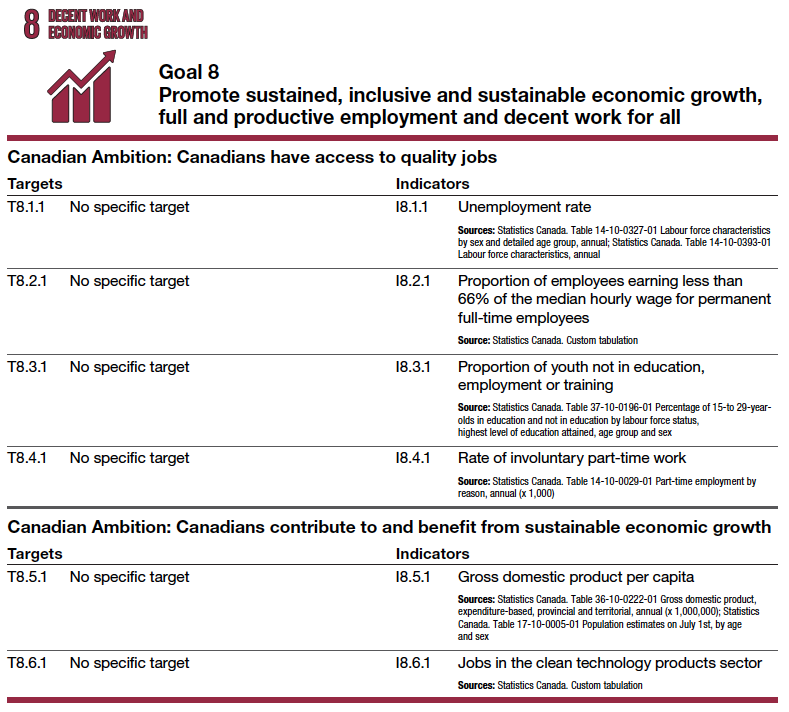Week 6

Video
Analysis
Worldwide, the nature of work is changing. Labour markets are rapidly evolving due to globalization, new technologies, evolving business models (including digital) and shifting demographics[1]. Amid rapid change, economic prosperity and success will increasingly depend on developing innovative policies and programs to help all people access good quality jobs, decent wages, social protections, and create a culture of innovation, skills development and lifelong learning1. Sustained and inclusive economic growth can drive progress, create decent jobs for all and improve living standards[2].
While Canada typically experiences strong economic growth with a historically low level of unemployment, labour disparities remain especially for underrepresented groups including women, Indigenous Peoples, racialized peoples, people living with disabilities, LGBTQ2+ people, and others marginalized on the basis of their ethnicity and other identity factors1.
Even before the outbreak of COVID-19, 1 in 5 countries, amounting to billions of people living in poverty, were likely to see per capita incomes stagnate or decline in 2020.
Fast Facts
- The global unemployment rate in 2017 was 5.6%, down from 6.4% in 2000;
- Globally, 61% of all workers were engaged in informal employment in 2016. Excluding the agricultural sector, 51% of all workers fell into this employment category;
- Men earn 12.5% more than women in 40 out of 45 countries with data;
- The global gender pay gap stands at 23% globally and without decisive action, it will take another 68 years to achieve equal pay;
- Women’s labour force participation rate is 63% while that of men is 94%;
- Despite their increasing presence in public life, women continue to do 2.6 times the unpaid care and domestic work that men do.
Why it Matters
Why should I care about decent work and economic growth for all? Sustained and inclusive economic growth can drive progress, create decent jobs for all and improve living standards.
Decent work means opportunities for everyone to get work that is provides a fair income, provides a safe workplace, and prospects for personal development and social integration. A continued lack of decent work opportunities leads to an erosion of the basic social contract underlying democratic societies: that all must share in progress.
Targets and Indicators for Canada
Below is Canada’s approach to measuring progress on SDG #8 – Decent Work and Economic Growth. Note the targets and indicators chosen[3].

Recommended Reading
- United Nations. (2021). The Sustainable Development Goal Report, 2020. Promote sustained, inclusive, and sustainable economic growth, full and productive employment and decent work for all.
- Global Affairs Canada. (2018). Canada’s Implementation of the 2030 Agenda for Sustainable Development: voluntary national review. ↵
- United Nations. (2021). Sustainable Development Goals. ↵
- Statistics Canada. (2021). The Canadian Indicator Framework for the Sustainable Development Goals - 2021. ↵

